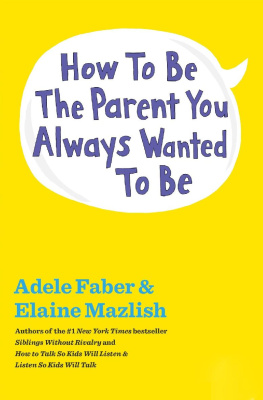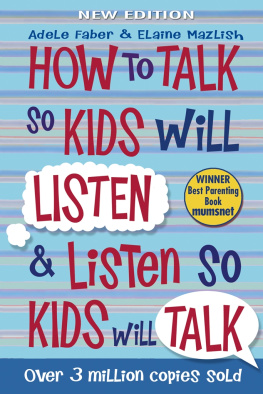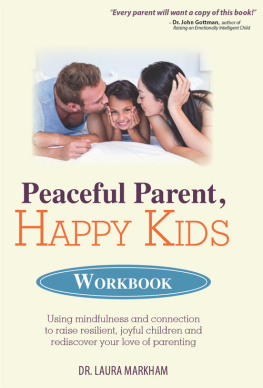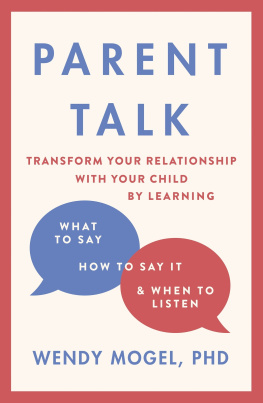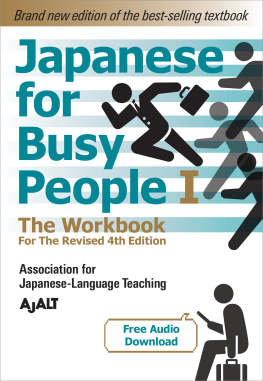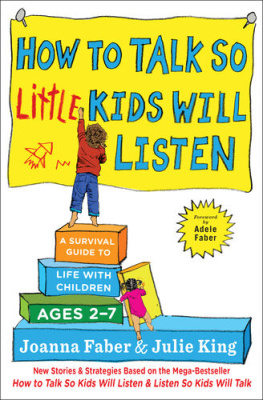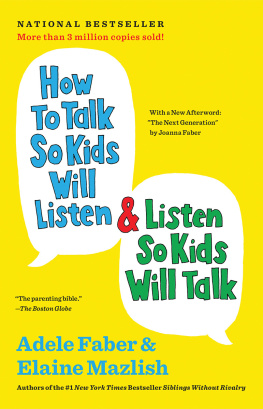
Adele Faber

Elaine Mazlish
Internationally acclaimed experts on communication between adults and children, Adele Faber and Elaine Mazlish have won the gratitude of parents and the enthusiastic endorsement of the professional community.
Their first book, Liberated Parents/Liberated Children , received the Christopher Award for literary achievement affirming the highest values of the human spirit. Their subsequent books, How to Talk So Kids Will Listen & Listen So Kids Will Talk and the #1 New York Times bestseller Siblings Without Rivalry, have sold more than four million copies and have been translated into over thirty languages. How to Talk So Kids Can Learn: At Home and in School was cited by Child magazine as the best book of the year for excellence in family issues in education. The authors group workshop programs and videos are currently being used by thousands of parent and teacher groups worldwide to improve relationships with children. Their most recent book, How to Talk So Teens Will Listen & Listen So Teens Will Talk , tackles the tough problems of the teenage years.
Both authors studied with the late child psychologist Dr. Haim Ginott and are former members of the faculty of the New School for Social Research in New York and the Family Life Institute of Long Island University. In addition to their frequent lectures throughout the United States, Canada, and abroad, they have appeared on every major television talk show from Oprah to Good Morning America. They currently reside in Long Island, New York, and each is the parent of three children.

MEET THE AUTHORS, WATCH VIDEOS AND MORE AT
SimonandSchuster.com
DISCOVER MORE GREAT BOOKS AT 
Authors.simonandschuster.com/Adele-Faber
Authors.simonandschuster.com/Elaine-Mazlish
About Feelings
What bothers me about kids is how they cry and carry on over the least little thing. And theres no reasoning with them.
About Feelings
When their unhappy feelings are denied or dismissed, children often become more upset.

Even a logical solution from the parent doesnt seem to help.
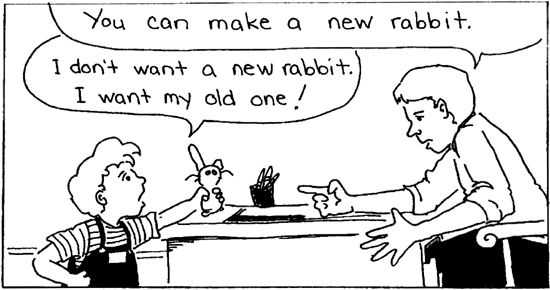
Children Want You to Know What Theyre Feeling
Sometimes it helps if you just listen.

Sometimes a word, like oh or mmm, lets them know you understand.
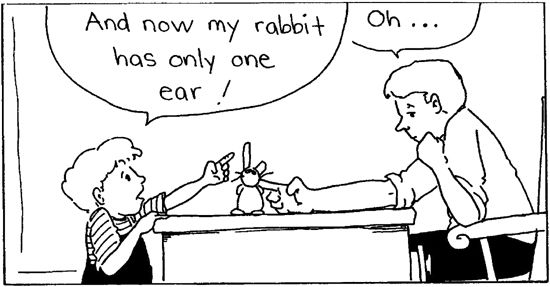
Sometimes it helps if you can name the feeling.

Most children appreciate it when you give them in fantasy what they cant have in reality.
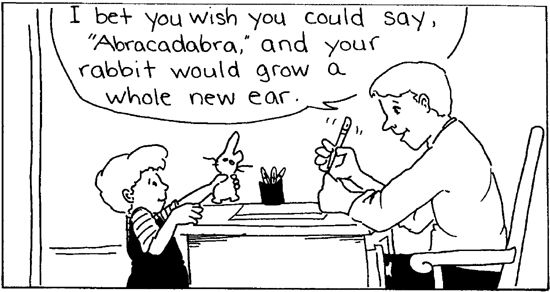
You can accept childrens feelings even when you need to stop or limit their actions.

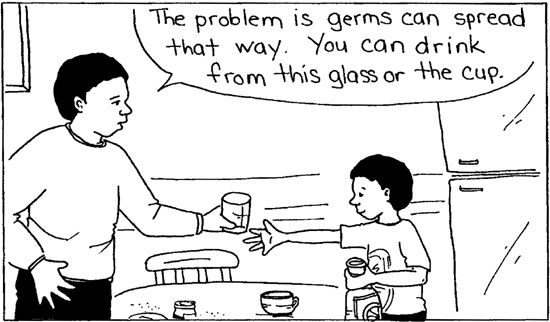
Practice Acknowledging Feelings
Part I
In each of the following examples, choose the response that shows you understand. |
1. CHILD: | Daddy nearly killed me when he took that splinter out of my finger. |
PARENT: | a) It couldnt have been that bad. b) Sounds as if it really hurt. c) He did it for your own good. |
2. CHILD: | Just because of a little snow, the coach canceled our big game. |
PARENT: | a) That must be a disappointment. You were all psyched to play and now you have to wait. b) Dont let it get you down. Youll have plenty of other chances to play. c) Your coach made the right decision. Sometimes a little snow can turn into a big snow. |
3. A child is playing with your new string of beads. |
PARENT: | a) How many times have I told you never to touch my jewelry? Youre a bad girl. b) Please dont play with Mommys beads. Youll break them. c) You really like my new beads. The problem is, they break easily. You can play with these wooden beads or with this scarf. |
4. CHILD: | I dont like spiders. |
PARENT: | a) Oh. b) Why not? Theyre part of nature. c) I dont like them either. |
5. CHILD: | ( looking anxious ) I have to take my math final tomorrow. |
PARENT: | a) Relax. Im sure youll do well. b) If you had spent more time studying, you wouldnt be worried now. c) You sound worried. Ill bet you wish it were over and done with. |
6. Your child is eating spaghetti with his/her fingers. |
PARENT: | a) Your table manners are disgusting. b) I know its tempting to eat with your fingers. When the family eats together, Id like you to use a fork. c) I cant believe that at your age youre still eating with your fingers. |
7. CHILD: | David wants to take me to the school dance. Hes really nice, but I dont know... |
PARENT: | a) Oh go. Youll see, youll have fun. b) Well make up your mind. Either you want to go or you dont. c) So, part of you wants to go and part of you isnt sure. |
8. CHILD: | Im gonna run away from home. |
PARENT: | a) Fine, Ill help you pack. b) Youre being silly. I dont want to hear that kind of talk. c) You sound very unhappy. Ill bet you wish a lot of things were different around here. |
Answers: 1b, 2a, 3c, 4a, 5c, 6b, 7c, 8c
Practice Acknowledging Feelings
Part II
Under each of the following statements, write
a) an unhelpful response
b) a helpful response that acknowledges feelings
1. Im never going to play with Susie again! |
Unhelpful: |
|
|
| #xa0; |
|
|
Helpful: |
|
|
| #xa0; |
|
Next page
